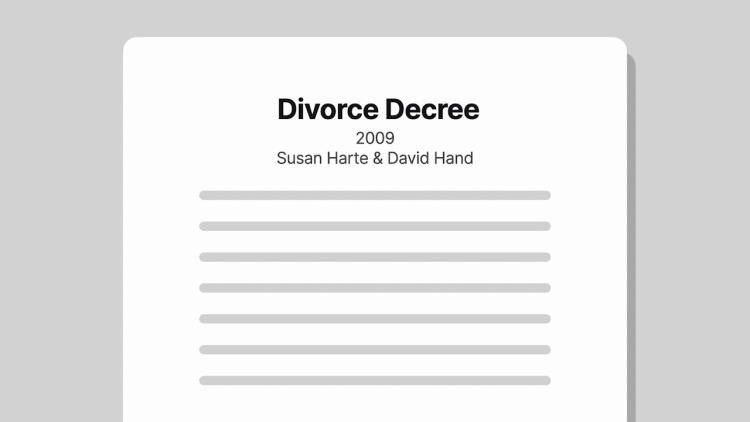Harte v. Hand
New Jersey Superior Court
81 A.3d 667 (2013)
- Written by Craig Conway, LLM
Facts
David Hand (defendant) was divorced from T.B. (plaintiff) and was ordered to pay child support for their daughter. Hand then married Susan Harte (plaintiff), and they had a son. During the marriage, Hand was seriously injured during his employment and received a $1,200,000 settlement with net proceeds of approximately $533,822. After the settlement, Hand agreed to an imputation of $57,200 in annual income when recalculating child support for T.B. Subsequently, Hand and Harte were divorced. At the time of the divorce decree, Hand again consented to the imputation of $57,200 in annual income when calculating child support for Harte. Hand then married another woman. Hand filed a motion to reduce child support for both children, claiming that he was unable to pay the child-support amounts based upon the agreed-to imputed income. The trial court denied Hand’s motion but noted that it would reconsider the motion if Hand presented a vocational expert to substantiate Hand’s lack of ability to earn the amount of imputed income. Later, Hand filed a motion for reconsideration to reduce his child support and supplied a report from a vocational expert, indicating Hand’s inability to earn the imputed-income amount. The trial court instead calculated the child-support obligations to T.B. and Harte based on the individual financial circumstances of the mothers, as provided for in the child-support guidelines. Hand appealed.
Rule of Law
Issue
Holding and Reasoning (Koblitz, J.)
What to do next…
Here's why 907,000 law students have relied on our case briefs:
- Written by law professors and practitioners, not other law students. 47,100 briefs, keyed to 996 casebooks. Top-notch customer support.
- The right amount of information, includes the facts, issues, rule of law, holding and reasoning, and any concurrences and dissents.
- Access in your classes, works on your mobile and tablet. Massive library of related video lessons and high quality multiple-choice questions.
- Easy to use, uniform format for every case brief. Written in plain English, not in legalese. Our briefs summarize and simplify; they don’t just repeat the court’s language.





